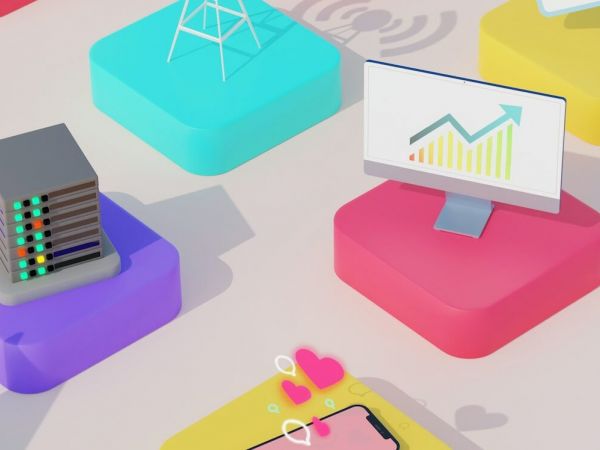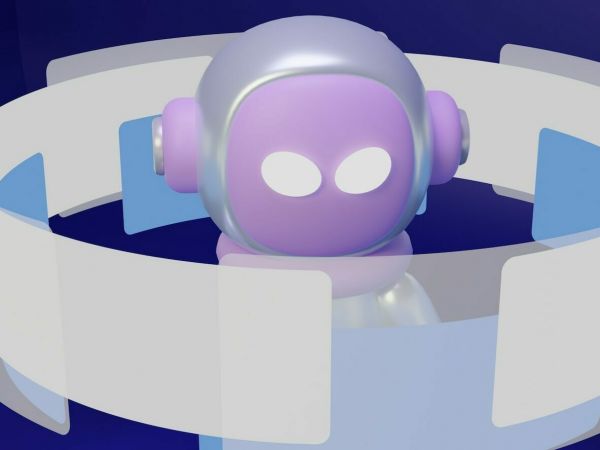NLP Helping Voice Assistants Become Highly Effective
Natural Language Processing is helping machines integrate into our human lives, especially through the new popular daily use of voice assistants.


Stephen Ward-Brown
We’ve seen a big rise in the popularity of voice assistants across the country. What’s the reason for this? Well, they help make our lives a lot easier on a daily basis and have become like a part of our family.
They’ve also completely changed the way we interact with technology. Siri and Alexa are two of the most popular voice assistants around today. They were created by Apple and Amazon and are both very realistic voice assistants that people use every day. They have become a staple of society and assist us with daily tasks.
These voice assistants talk to us like any human would, and that’s a crazy concept. The way they can understand us and communicate back is by something called Natural Language Processing (NLP) software. This allows them to comprehend our words and give accurate responses, just like a human.
Examining how NLP works and has changed the way humans interact with technology is vital to understanding the current and future benefits this can have on society. Voice assistants aren’t going away anytime soon, so let’s investigate the reasons behind their success.
The robot takeover is on!
Understanding Natural Language Processing
NLP is a key aspect of artificial intelligence (AI). At its core, it makes AI the most human-like it can be. You can think of it like the brains of the operation. It feeds the interaction of language between humans and computers. Without it, there’d be no way for communication to happen.
NLP uses a combination of semantics, active learning, and computer logistics to be able to understand human language. It’s wild that come computer codes can generate human language from a non-living object. Or is it living? 👀 I’ll save that geek debate for another day.
With the use of NLP, these voice assistants can understand and respond to complex questions. Plus, since it’s always learning it can adjust to your particular accent and the variations of human language. The lengths this technology can go to are unimaginable. AI and NLP are only going to keep evolving their relationship.
Amazon Alexa: The Intelligent Voice Assistant
The example of Amazon Alexa is great because it shows how NLP has evolved and revolutionized the trajectory of voice assistants. The machine learning programming it has within its software is so expansive that it’s one of the best-equipped voice assistants in the world.
I love the videos of grandparents seeing Alexa in action for the first time because it absolutely blows their minds. I feel their reaction though because it is crazy to think how fast this software has come about. Alexa can accurately respond to queries spoken to her by converting the spoken word to text, extracting vital information, and then generating a spoken response back in mere seconds.
Alexa uses NLP to answer questions about the weather, traffic delays, and so much more. It can also add notes to your schedule and search the internet for answers to questions you may have. There’s so much this voice assistant can do.
So, now these AI bots can have conversations with us. Oh, how technology has evolved.

Key Components of Alexa’s NLP Software
One of the key aspects of Alexa is its speech recognition. It’s able to convert spoken words into written text within its software. NLP can transcribe spoken words into accurate text that can be broken down into parts. This is where Natural Language Understanding (NLU) comes in.
NLU algorithms extract the most meaningful text to determine its intent. Things like names and sentence structure help determine intent. The contextual understanding of the query is also important to consider. Voice assistants use conversation history and the user’s context to better understand the current conversation. This allows for a better and more personalized response that makes voice assistants all the rage in today’s world. This goes towards machine learning capabilities.
The NLP coding inside Amazon Alexa can analyze the sentiment within user queries. This allows the voice assistant to sense the emotional tone of the conversation, just like a human would. This ability enhances the user experience and develops a relationship between man and machine.
Benefits and Applications of NLP in Alexa
Alexa, and other voice assistants, are continuing to grow in popularity because of all the benefits they offer. The conversational experience is a huge benefit of the NLP software. It makes the conversation feel more natural and allows people to converse with more casual verbiage, rather than the need for strict commands. Alexa’s NLP capabilities help it retrieve information quickly and efficiently from any database. No matter the question, it can provide timely and accurate responses.
A super cool feature that Amazon Alexa offers is the ability to integrate with smart home devices. Thanks to NLP, people can use voice commands to adjust the lighting in the room, set the thermostat temperature, and control music devices and appliances within the household. It ends up making you feel like you’re living in the future.
The personalization Alexa offers by learning from past interactions is another drawing point for users. The more communication someone has with the voice assistant, the more it begins to know you and tailor responses to your liking.
Limitations and Future Developments
Even with all the benefits these voice assistants offer, there are still ways they can improve. The ability to understand strong accents is still difficult for the software to pick up, so annunciating is needed for voice assistants to understand you. There are also some privacy concerns and troubles with super complex questions. Luckily, there are constant updates and advancements in NLP software to improve its capabilities.
The future holds some great possibilities for voice assistants and NLP software. Technology is always evolving, so I wouldn’t be surprised if voice assistants are able to handle complex queries and understand multiple languages and accents in the near future.
Some people are even saying that future voice assistants will be able to take in visual cues. This would be a huge step in the advancement of NLP. It will also allow voice assistants to engage in deeper conversations with users, making them more effective in answering questions.
Conclusion
Voice assistants are very effective because of the NLP software inside of them. It’s helped make their understanding of the human language efficient, and their responses effective. This makes the conversations between man and machine more relatable and life-like.
The integration of technology into our lives is never going to slow down, and as NLP continues to improve, it’s only going to become more streamlined. Hello, digital transformation.
Stephen Ward-Brown
Other Insights
Contact Us
Monday Loves You
1770 West Berteau Avenue, #206
Chicago, IL 60613
312.973.1112
hi@mondaylovesyou.com
©Duple Meter LLC 2024
Contact Us.
Monday Loves You
1770 West Berteau Avenue, #206
Chicago, IL 60613
312.973.1112
hi@mondaylovesyou.com






